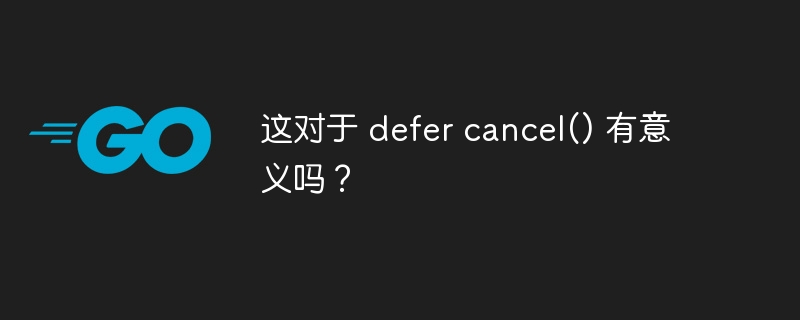这对于 defer cancel() 有意义吗?
- 王林转载
- 2024-02-12 13:45:06997浏览

问题内容
在 http.HandlerFunc 中我得到了这个。但我的问题是:在应用超时上下文之后放置 defer cancel() 是否有意义?
因为底部的选择将继续监听,直到上下文完成。并且延迟将在上下文完成后执行。但那已经完成了吗? :)
// Apply timeout context
var cancel context.CancelFunc
ctx, cancel = context.WithTimeout(ctx, time.Duration(time.Duration(match_route.timeout) * time.Second))
defer cancel() // <--- does this make sense
go func(){
match_route.handler(w, r.WithContext(ctx))
cancel()
}()
select {
case <-ctx.Done():
if ctx.Err() == context.DeadlineExceeded {
http.Error(w, "Timeout", http.StatusRequestTimeout)
}
}解决方法
是的,我认为这确实有道理,实际上使用 defer cancel() 的目的是确保调用 cancel 函数来释放与上下文关联的资源,无论函数如何退出,在您的示例中, cancel() 函数被推迟到 http.HandlerFunc 完成后或上下文完成时执行,因此 go func() 负责使用提供的上下文执行 match_route.handler 函数,然后调用 cancel()显式取消上下文,select语句用于等待上下文完成,如果由于超过截止日期而完成上下文,则会返回错误响应!
以上是这对于 defer cancel() 有意义吗?的详细内容。更多信息请关注PHP中文网其他相关文章!
声明:
本文转载于:stackoverflow.com。如有侵权,请联系admin@php.cn删除

